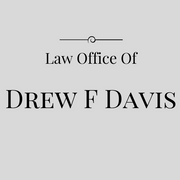
Whether you’re currently working at a job you love or looking for your next position, a DWI may have you worrying that your career is at an end. However, in some cases, it may not be more than a minor setback. If you’re hoping to learn more about DWI charges and how they will affect your work, consider the overview below.
What a DWI Means for Employment
If you are convicted—not just charged—of a DWI, one of your penalties could be the suspension of your license. In this case, you will be unable to drive to work. Taking cabs can be expensive, and if you can’t rely on a friend to drop you off, you may get to work late or not at all. In addition, hearings and court appearances could force you to call out of shifts more often. If you’re a commercial driver, you may be fired immediately. Some companies have a mandatory firing policy whenever an employee is convicted of a crime.
If you’re between jobs, finding a new position can be tricky with a DWI on your record. On your application, you’ll have to check the box that says you’ve been convicted of a crime, which may cause an immediate rejection. Potential employers may also find this information when they conduct a background check.
The laws about how employers can use your criminal record vary from state to state, but in Missouri, there are no explicit state-level restrictions. Employers are also bound by the Equal Employment Opportunity Commission, which issues guidelines on evaluating conviction histories in a nondiscriminatory fashion.
When to Tell Your Employer
 If you were only charged with a DWI but were not convicted, you don’t need to disclose the details with your employer. Arrests alone aren’t enough to establish criminality. However, if you’re eventually convicted and your license is suspended, you may want to discuss it with your employer. Chances are, your boss will find out sooner or later, and they may let you go on the grounds of dishonesty. Each case is different, however, so it’s best to consult with an attorney about the best course of action to protect your interests.
If you were only charged with a DWI but were not convicted, you don’t need to disclose the details with your employer. Arrests alone aren’t enough to establish criminality. However, if you’re eventually convicted and your license is suspended, you may want to discuss it with your employer. Chances are, your boss will find out sooner or later, and they may let you go on the grounds of dishonesty. Each case is different, however, so it’s best to consult with an attorney about the best course of action to protect your interests.
If you’re invited for an interview and are asked about a conviction, you may want to explain or contextualize the situation, and mention what steps you’ve taken to avoid such issues in the future, such as counseling or sobriety groups.
If you want to preserve your career or get that dream job without a DWI charge getting in the way, turn to the Law Offices of Drew F. Davis of Cameron, MO. They have over 20 years of experience helping clients in a wide range of practice areas, from real estate law to criminal defense. To learn more about their skills, visit the website. Call (816) 632-7575 to arrange for a consultation.
About the Business
Have a question? Ask the experts!
Send your question

